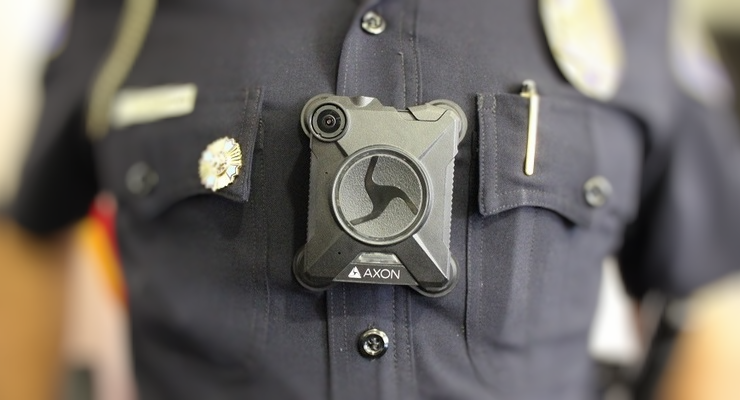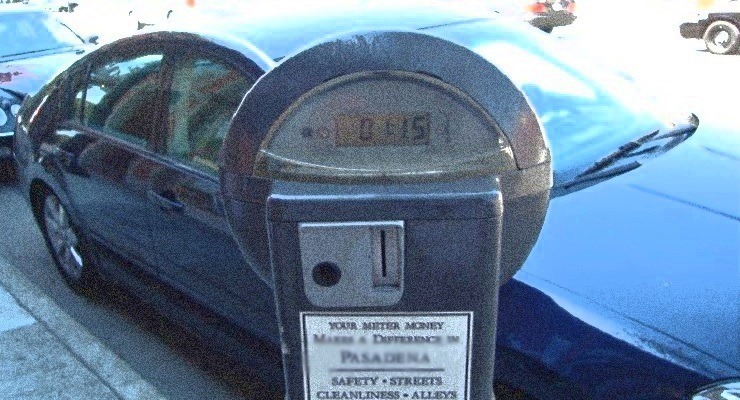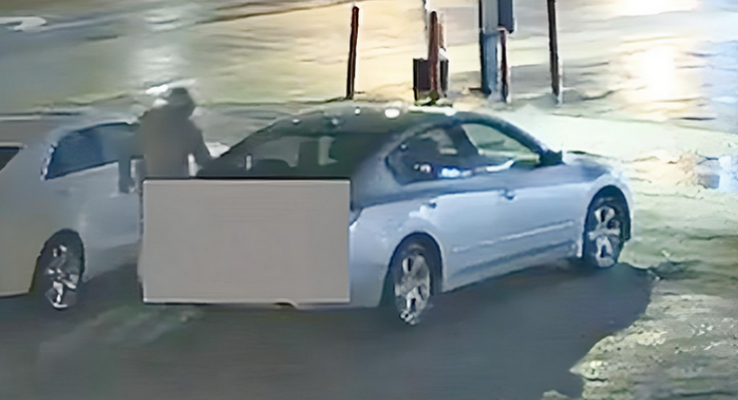Pasadena’s diversity is reflected in the rich mosaic of holiday traditions celebrated by those who live here. In this story and photo gallery, we look at several of those time-honored customs, as Pasadenans let us inside their homes and their lives at this special time of year.
Episcopalian Christmas, Reverend Susan Russell, All Saints Church
Reverend Susan Russell, Senior Associate at All Saints Church, shared their Christmas traditions. Reverend Russell explained that the roots of their celebration are in the earliest Catholic traditions but that as an Episcopalian church, All Saints takes a different approach to the liturgy and Christmas pageant.
This year, Reverend Russell said, the role of baby Jesus will be played by a baby girl at the church’s afternoon service.
“When we look at the Christmas pageant and baby Jesus, we want to look at a baby that incarnates all of humanity — not just one gender or ethnicity,” she said.
Reverend Russell adds that the celebrations will also include choirs, carols, hymns an orchestra and visits from believers in other faiths. Members of the Muslim and Jewish communities will attend events and share scriptures from their sacred texts as well as wish the congregation a merry Christmas.
“All Saints is committed to putting our faith into action. We always live our lives in faith deeply connected to others,” said Reverend Russell.
All Saints Church celebrates Christmas with four Christmas Eve services today: a 3:00 p.m. Family Service, a 5:30 p.m. Festive Eucharist at which Reverend Russell preaches, and 8:00 p.m. and 11:00 p.m. Festive Eucharist services at which Rector Mike Kinman preaches.
On Christmas Day, Reverend Zelda Kennedy will lead a 10:30 a.m. Eucharist.
All Saints is located at 132 North Euclid Avenue in Pasadena. For more see www.allsaints-pas.org
Child care will be provided for all services.
Hanukkah, Rabbi Hanoka, Chabad of Pasadena Synagogue and Jewish Community Center
“Hanukkah’s popularity is because it’s a fun holiday. It’s nice, it’s warm, it’s cozy, it’s family time and it’s pretty easy and straight-forward,” said Rabbi Hanoka of Chabad of Pasadena.
This year, Hanukkah begins at sundown today, December 24.
Hanoka explained that this holiday celebrates the Miracle of the Oil — when a cruse of oil miraculously lasted eight days instead of one. The Lighting of the Menorah is a crucial part of the holiday and symbolizes the oil.
“Things made in oil are eaten on Hanukkah to commemorate the Miracle of the Oil,” he explained. Popular choices are latkes – potato pancakes fried in oil – and jelly doughnuts – also fried in oil.
In addition to these foods, gelt or chocolate coins are also eaten and given as gifts. They are also used as currency in games of dreidel. Each face of the four-sided top has a letter of the Hebrew alphabet. The dreidel was used by ancient Jews as they were studying the Torah, which had been outlawed by ancient Greeks.
Although Hanukkah is not one of the High Holidays on the Jewish Calendar, it is probably one of the most well-known.
“It’s an eating holiday. What’s not to enjoy? You exchange gifts, you eat food, you have parties, you play Dreidel.” said Rabbi Hanoka.
Celebrate Hanukkah on Sunday, December 25 with a Menorah Lighting at City Hall at 100 Garfield Avenue from 2 p.m to 5 p.m. Enjoy glow-in-the-dark necklaces, face painting, hot latkes and live music.
Armenian Christmas Traditions, Bill Paparian, Former Pasadena Mayor
“Kids in the Armenian community are very lucky because they get to celebrate Christmas more than once,” said Bill Paparian, former Mayor of Pasadena. “My family celebrates it three times.”
Armenian Americans primarily adhere to Christianity and are most are members of the Armenian Apostolic Church, which dates back the 1st century AD.
Paparian explains that Armenians celebrate Christmas on December 25, December 31 and January 6.
This discrepancy in date comes from the differences between the Gregorian and the Julian calendars. The former is accepted in most of the western world while the latter is followed by Orthodox Christians.
“It makes for a very warm and loving sentiment in the Armenian community,” he said.
Aside from the multiple celebrations, Paparian says that an Armenian Christmas is “just like any other with a Christmas tree and presents.”
Muslim Seasonal Traditions, Salma Zarook, New Horizon School
“We do believe in Mary and Jesus but we don’t celebrate [Christmas] as a religious holiday,” said Salma Zarook, the Marketing and Admissions Associate at Pasadena’s New Horizon School.
New Horizon is an Islamic school which teaches both academics and religious education to a student body of over 200 children attending pre-kindergarten through eighth grade classes.
This year, students delivered tins of cookies to their neighbors and wished them well. Zarook adds that many Muslims use this season as a time to connect with family and friends.
“We support our neighbors and friends who are celebrating holidays,” she said.
The most recent Muslim holiday was Eid al-Adha, which marked the end of the pilgrimage to Mecca and the faith of Abraham and his wife, Hajj.
According to the Qur’an, Abraham was commanded by Allah to sacrifice his son as a testament to his faith. As he prepared to do this, Allah revealed that his sacrifice had already been completed because he proved his faith by his willingness to follow Allah’s wishes. Instead, he was commanded to sacrifice a ram.
Around the world, Muslim families attend mosque together for Eid al-Adha and then gather for the sacrifice of an animal, often a goat, cow or camel as opposed to a ram, which comes from the story of the prophet Abraham. In the United States, the sacrifice is marked by the eating of halal meats in various dishes and by supporting humanitarian organizations to oversee the butchering of animals and the distribution of the meat to the impoverished.
Hispanic Christmas, Yuny Parada, Pasadena Latino Forum
Yuny Parada, Pasadena Latino Forum Co-Chair, explained that she will be celebrating Christmas this year with traditional “Posadas,” which are symbolic reenactments of the journey Mary and Joseph took seeking shelter for the birth of the baby Jesus.
The celebration starts at beginning of December with Mary and Joseph going to a new place each week until Christmas day, when the posadas is received. Following the story in the bible, the couple is turned away until they eventually find room in the stable.
This year’s Las Posada took place on December, 22 and visited the Pasadena Public Library, the Pasadena Police Station, City Hall and ended at All Saints Church. Parada describes the event as a family and community event where everyone was invited on the symbolic journey.
In addition to Las Posadas, there will be a celebration with food, music and family. Parada explains that tamales are the traditional food but that Mexico and each country in Central and South America has its own variation on the tamale.
“Number one, it’s a family affair, and we must have tamales. Different countries have tamales of different makes. Champurrado is the drink of the day, which is a chocolate drink, [like] chocolate with milk,” she said. It is traditionally made with maize or corn, chocolate and milk.
“It’s a celebration that’s going on from the beginning of December. So every week we go to one family’s home, then on Christmas day they find where the big affair is going to take place, and that’s where the posadas is received.”
Pictured in the gallery above is a very large nativity scene created and stage every year for the last decade and a half by Gabriela and Abraham De Leon at their Northwest Pasadena home. The scene depicts localities from the couple’s heritage, and the baby Jesus — who does not appear until midnight on Christmas Eve, symbolizing his arrival on Earth, is a 50-year-old figure passed down to Abraham from his mother.
Kwanzaa, Ester Watkins,Chair of La Pintoresca Branch Library Kwanzaa Celebration
The pan-African celebration of Kwanzaa begins on December 26 and runs until December 31. This holiday was created by Dr. Maulana Karenga in 1966 as a way to reaffirm the African American identity. This non-denominational holiday celebrates seven principles, originally written in Kiswahili (Swahili).
“It’s really something all can learn from,” said Ester Watkins, Chairperson of the Kwanzaa celebration at the La Pintoresca Branch Library and member of Delta Sigma Theta Sorority.
During the holiday, candles are lit to represent the seven principles (nguzo saba) of Kwanzaa – unity (umoja), self-determination (kujichagulia), collective work and responsibility (ujima), cooperative economics (ujamaa), purpose (nia), creativity (kuumba), and faith (imani). The colors of the candles – 3 red, 1 black, and 3 green – come from the colors in flags of African liberation movements. Watkins described the principles of Kwanzaa below:
Umoja – “Unity in the homes, community, nation and unity as a race.”
Kujichagulia – “Self-determination – renewing yourself and redefining yourself; not letting other speak for you.”
Ujima – “Collective work and responsibility – make our brothers and sisters’ problems our own so that we can solve them together.”
Ujamaa – “Cooperative economics – maintain our own businesses and profit together.”
Nia – “Purpose – make sure your vocation helps in developing our community and restoring our people to traditional greatness.”
Kuumba – “Creativity – do as much as you can whenever you can to leave your community better than you inherited it.”
Imani – “Faith – to believe in our people and the righteousness of our struggle.”
Watkins explains that the last day of Kwanzaa concludes with a feast, or Kwanzaa Karamu, which includes African and African American foods like plantains, groundnut stew and Zulu greens.
“It’s a cultural celebration to remember your past and people who really had an influence on you,” said Watkins.
“Kwanzaa: A Celebration of Family, Community & Culture” will take place on Tuesday, December 27 from 11 a.m. to 1 p.m. at La Pintoresca Branch Library, 1355 N. Raymond Ave. Enjoy music, stories and tasty dishes prepared by members of the Pasadena Alumnae Chapter of Delta Sigma Theta Sorority. For more information contact Pat Smith (626) 744-7268 or psmith@cityofpasadena.net.














 0 comments
0 comments


